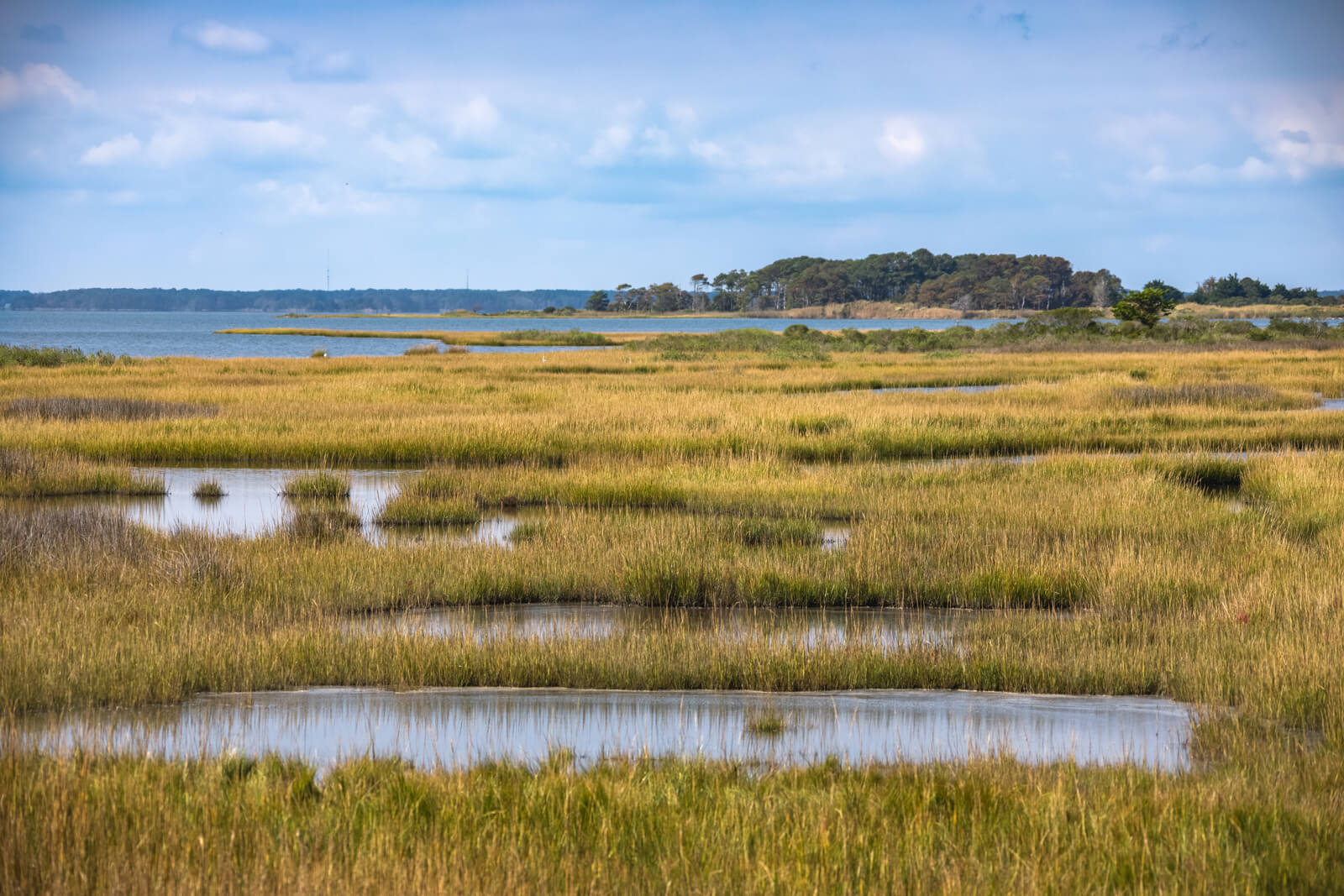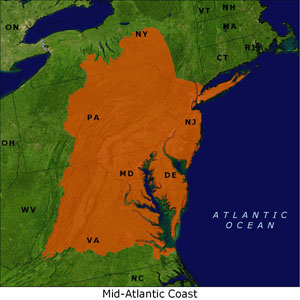Level II Ducks Unlimited conservation priority area, popular wintering area for waterfowl, including the declining American black duck

The Mid-Atlantic Coast contains several very significant areas for waterfowl, hence DU's involvement: the Chesapeake Bay, Delaware Bay, New Jersey coast and Long Island. Barrier beaches and dunes, submerged aquatic vegetation, intertidal sand and mudflats, salt marsh islands, fringing tidal marshes and maritime forest characterize these highly productive shallow water and adjacent upland habitats. Maintaining or improving water quality and waterfowl habitat in the Chesapeake Bay and other Mid-Atlantic estuaries will be challenging given the projected regional growth in human populations and climate change impacts.

Delaware | Maryland | New Jersey | New York
Pennsylvania | Virginia | West Virginia
Ducks Unlimited uses cookies to enhance your browsing experience, optimize site functionality, analyze traffic, and deliver personalized advertising through third parties. By continuing to use this site, you agree to our use of cookies. View Privacy Policy